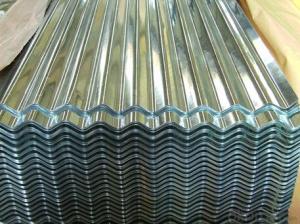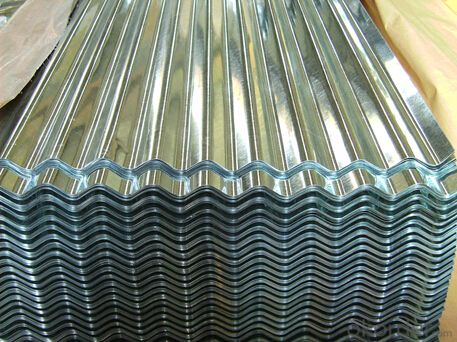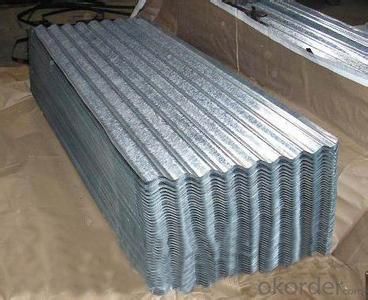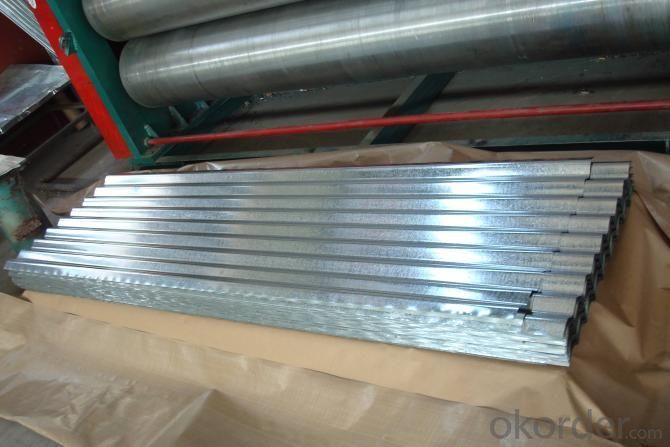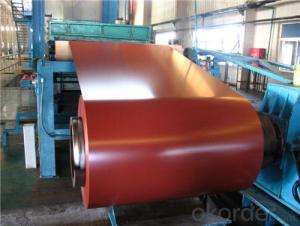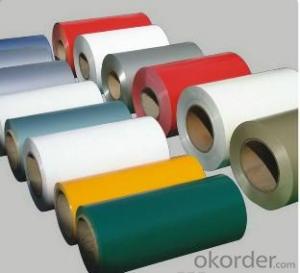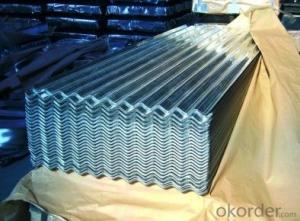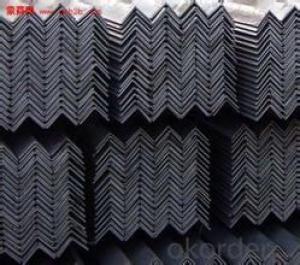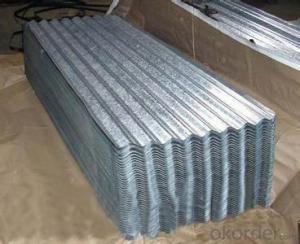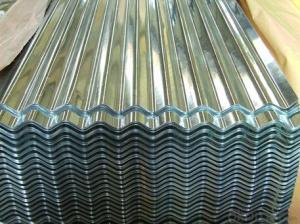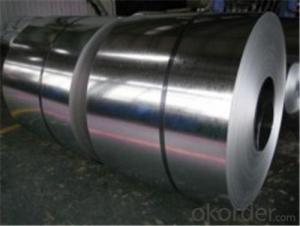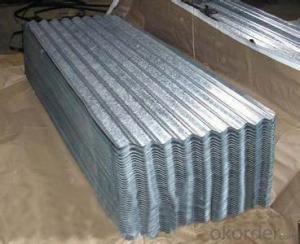Hot-Dip Galvanized Steel Roof with Good Price of China
- Loading Port:
- Shanghai
- Payment Terms:
- TT OR LC
- Min Order Qty:
- 50 m
- Supply Capability:
- 10000 m/month
OKorder Service Pledge
OKorder Financial Service
You Might Also Like
1. Hot-Dip Galvanized Steel Roof Description:
Hot-dip galvanized steel roof are available with a pure zinc coating through the hot-dip galvanizing process. It offers the economy, strength and formability of steel combined with the corrosion resistance of zinc. The hot-dip process is the process by which steel gets coated in layers of zinc to protect against rust. It is especially useful for countless outdoor and industrial application.
2.Main Features of the Hot-Dip Galvanized Steel Roof:
• Excellent process capability
• Smooth and flat surface
• Workability, durability
• Excellent heat resistance performance
• High strength
• Good formability
• Good visual effect
3.Hot-Dip Galvanized Steel Roof Images
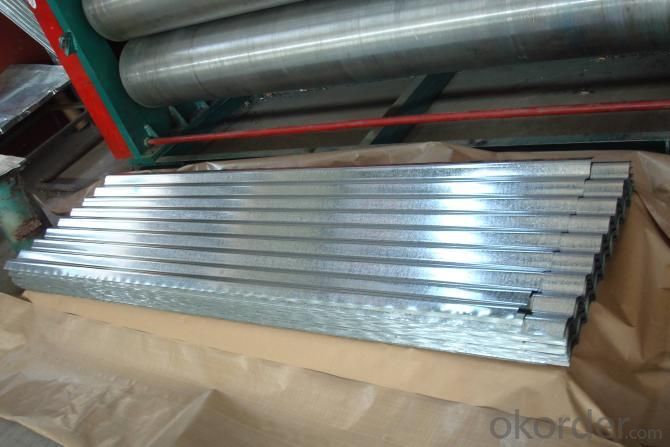
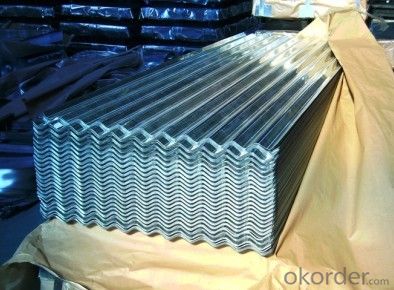
4.Hot-Dip Galvanized Steel Roof Specification
Material: Galvanized Sheet
Width: 650/800/890/900
Length: 1500/1800/2000/2400/3005/3600 or customized
Thickness: 0.2-2.0
Surface Treatment: Hot dipped/Bended
Application: warehouse; shelter; Commercial facilities; industrial facilities
5.FAQ of Hot-Dip Galvanized Steel Roof
Which payment term we can do?
L/C at sight or T/T.
What’s the basic material of this product?
Galvanized/Aluzinc Steel
- Q: I'm a big fan of stainless steel and sterling silver, but not of the humidity of the country I'm in. Therefore I sweat more. Gross, I know. I'm buying a necklace chain for my ring.So does sweat contribute to tarnishing of silver and steel? The real kind?
- steel shouldn't really tarnish, it rusts and moisture increases that. Silver tarnishes when exposed to air and sulfur. Moisture increases the process a bit, but it happens anyway. Sweat is not gross, it's a necessary function of your body, otherwise you would die. A lot of sports people wear jewelry and they sweat a lot. If you wear the jewelry all the time, that will prevent the tarnish a bit. If you take it off, clean it (water and dish washing liquid), dry it and put it in a zip lock back to keep it away from air and moisture. In the end, cleaning the jewelry is quick and easy so don't worry about it.
- Q: What is the maximum width of a steel coil?
- The maximum width of a steel coil can vary depending on factors such as manufacturing capabilities and customer requirements. However, in general, steel coils can have a maximum width ranging from 30 inches to 96 inches or even wider.
- Q: How are steel coils used in the manufacturing of automotive body panels?
- Steel coils are used in the manufacturing of automotive body panels by being processed and shaped into the desired form through techniques like stamping or roll forming. These coils provide the raw material for creating strong and durable body panels, ensuring the vehicle's structural integrity and safety.
- Q: How many pounds can steel lift?
- It depends on the type of steel and the geometry of the item.
- Q: doesnt steel rust?
- Iron mixed with other metals:
- Q: What are the quality standards for steel coil production?
- The quality standards for steel coil production typically include factors such as dimensional accuracy, surface finish, mechanical properties, chemical composition, and adherence to industry-specific standards and specifications. These standards ensure that the steel coils meet the required strength, durability, and performance criteria, and are suitable for various applications in industries like automotive, construction, and manufacturing.
- Q: This needs to be in a percentage by mass. Could you please also reference where this info has come from. Thanks.
- Steel is almost all elemental Iron (Fe) with a small percentage of carbon (about 0.2 percent) and other alloying metals if required. Iron as in cast iron just has more carbon which lowers the melting point to where it can be cast with lower technology (it was discovered first). Bessemer developed a process to remove most of the carbon and increase the furnace heat, resulting in a tougher metal called steel.
- Q: What are the current trends in the steel coil industry?
- Some current trends in the steel coil industry include the increasing demand for high-strength steel coils due to their durability and lightweight properties. There is also a growing focus on sustainability and environmentally friendly practices, leading to the development of eco-friendly coatings and recycling initiatives. Additionally, digitalization and automation are becoming more prevalent, enhancing efficiency and productivity in steel coil manufacturing processes.
- Q: I've played guitar for years, now I want a steel guitar. As a beginner, to learn and experiment with, which one would be better for me?
- Pedal steel is very difficult. You need to co-ordinate both hands, both feet and both knees to play it effectively. Lap steel is a lot easier. I suppose it depends how much of a challenge you want. A good lap steel guitar is usually cheaper than a good pedal steel too, so that's another consideration to take into account.
- Q: How are steel coils used in the production of automotive components?
- Steel coils are used in the production of automotive components as they are rolled into flat sheets and then further processed to create various parts such as body panels, frames, and chassis. These coils provide the necessary strength and durability required for automotive applications, ensuring the safety and performance of vehicles.
Send your message to us
Hot-Dip Galvanized Steel Roof with Good Price of China
- Loading Port:
- Shanghai
- Payment Terms:
- TT OR LC
- Min Order Qty:
- 50 m
- Supply Capability:
- 10000 m/month
OKorder Service Pledge
OKorder Financial Service
Similar products
Hot products
Hot Searches
Related keywords
